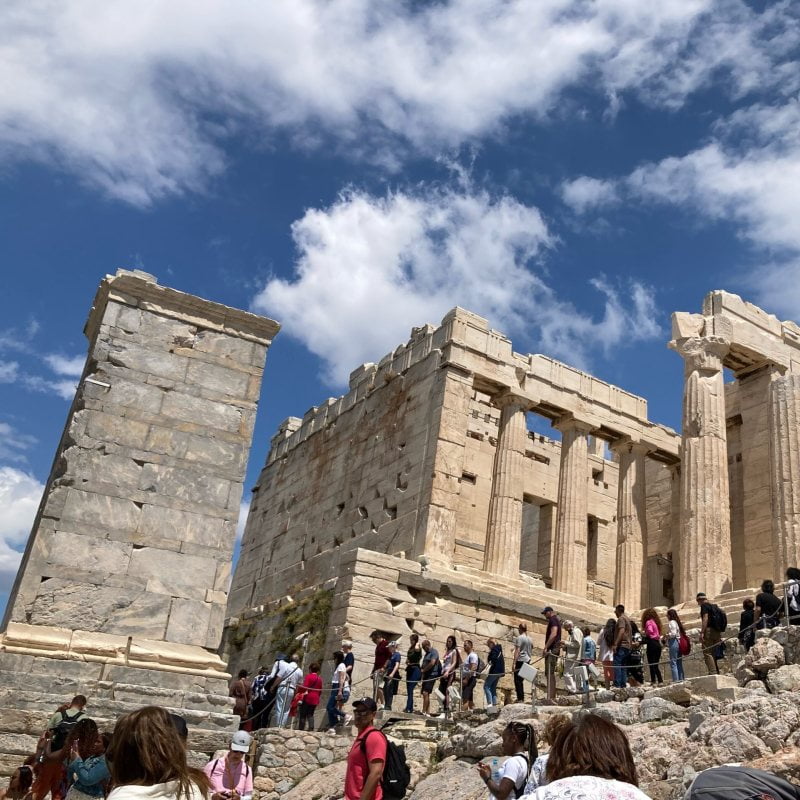
Aeropagus
Acts 17:22-31
This passage gives us plenty to think about our approach to a number of things, especially the way we present the Gospel to others.
Acts, attributed to Luke, author of the 3rd Gospel. He was a well-educated greek-speaker, probably a doctor. He writes some of the best Greek in the New Testament, His approach to history is clear and includes times and places. This is part of the 2nd Missionary Journey so happened around late 49 AD or early 50 AD. The Aeropagus was a rock platform on the North East Corner of the Acropolis.
Luke records Paul speaking in the first person. It is likely that either Luke heard these events, or had an account from someone who heard these events. It is highly likely in Greek we have some of the words that Paul spoke, though given other accounts of Paul’s preaching, this is a highlight summary!
Paul starts addressing the Athenians directly on their own terms and in their own context. He does not start on the basis of what they are doing wrong, but rather by commending them for what they have understood. This of course is quite different to those who want to start by telling people what they are doing wrong.
So we find Paul starts with what they already understand and builds from that. He does not rubbish any of the other Gods, and not even the ‘unknown God’ even though that may have been an easy approach.
Rather than tear down Paul builds up and moves from the known unknown to the unknown known. He moves from the limitations of the physical to the opportunities of the spiritual.
We are challenged in our approach to people, to be looking for what they have understood, not just for why they are wrong.
Church History presents us with some examples where we should have listened more before tearing things down. Copernicus Kepler and Galileo argued that the earth revolved around the sun. In defence of the understanding people had of God and the Bible, they were decried and denounced because the Bible said differently,
A more constructive approach would be to listen and observe more and take the approach of Paul at the Aeropagus.
In Him we live and move and have our being, for we too are his offspring.
The resounding crescendo of this address is a generous and broad understanding of who Christ is. For Christ is the supreme essence of our being, our foundation, our purpose and our hope. Yet this is an inclusive call, not an exclusive call.
Our political life, and indeed much of our approach to issues in general is adversarial. Too easily and too often this ends up in the mud of derision and division. The approach Paul presents here is quite different, engaging and inclusive,
